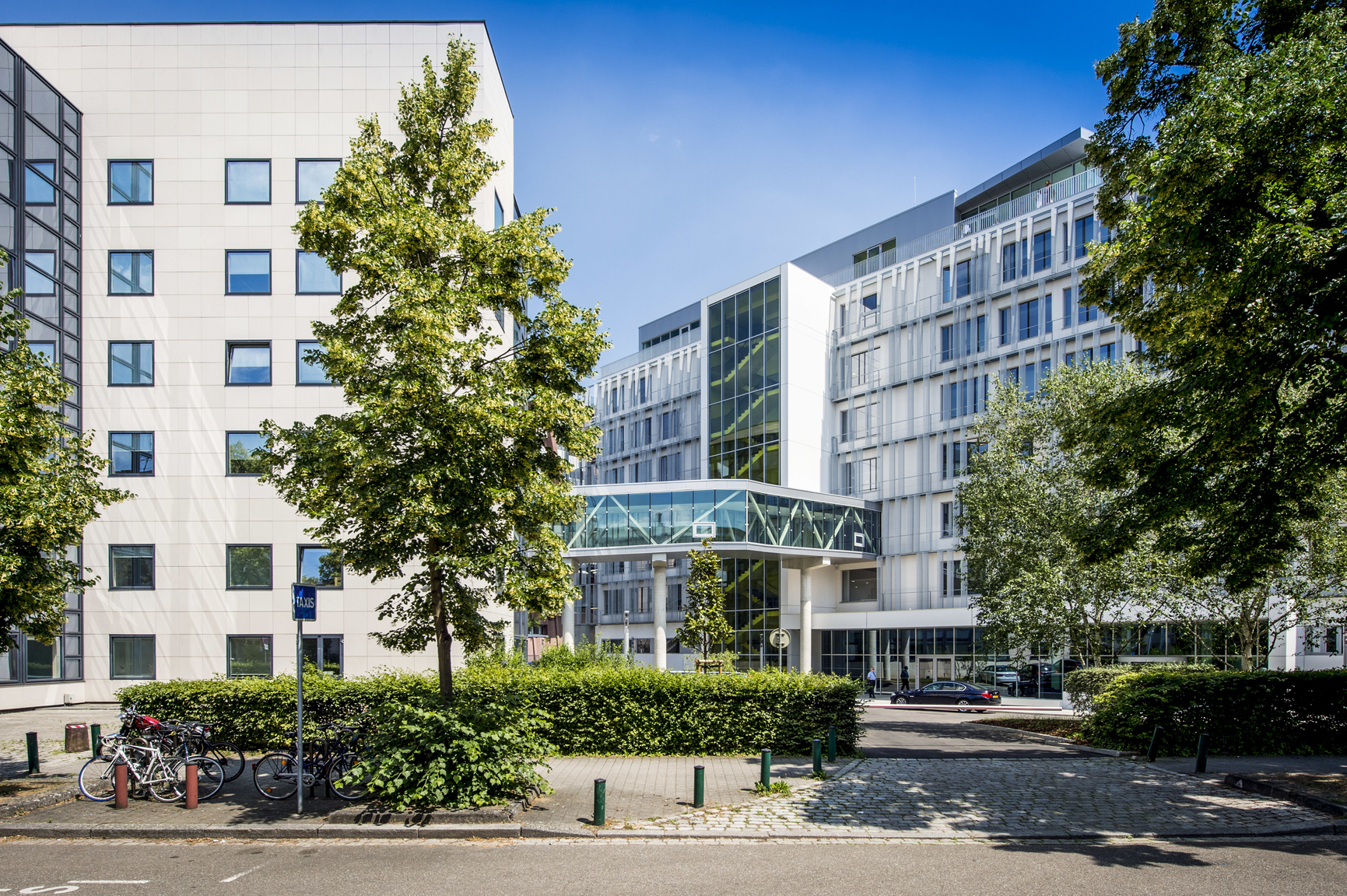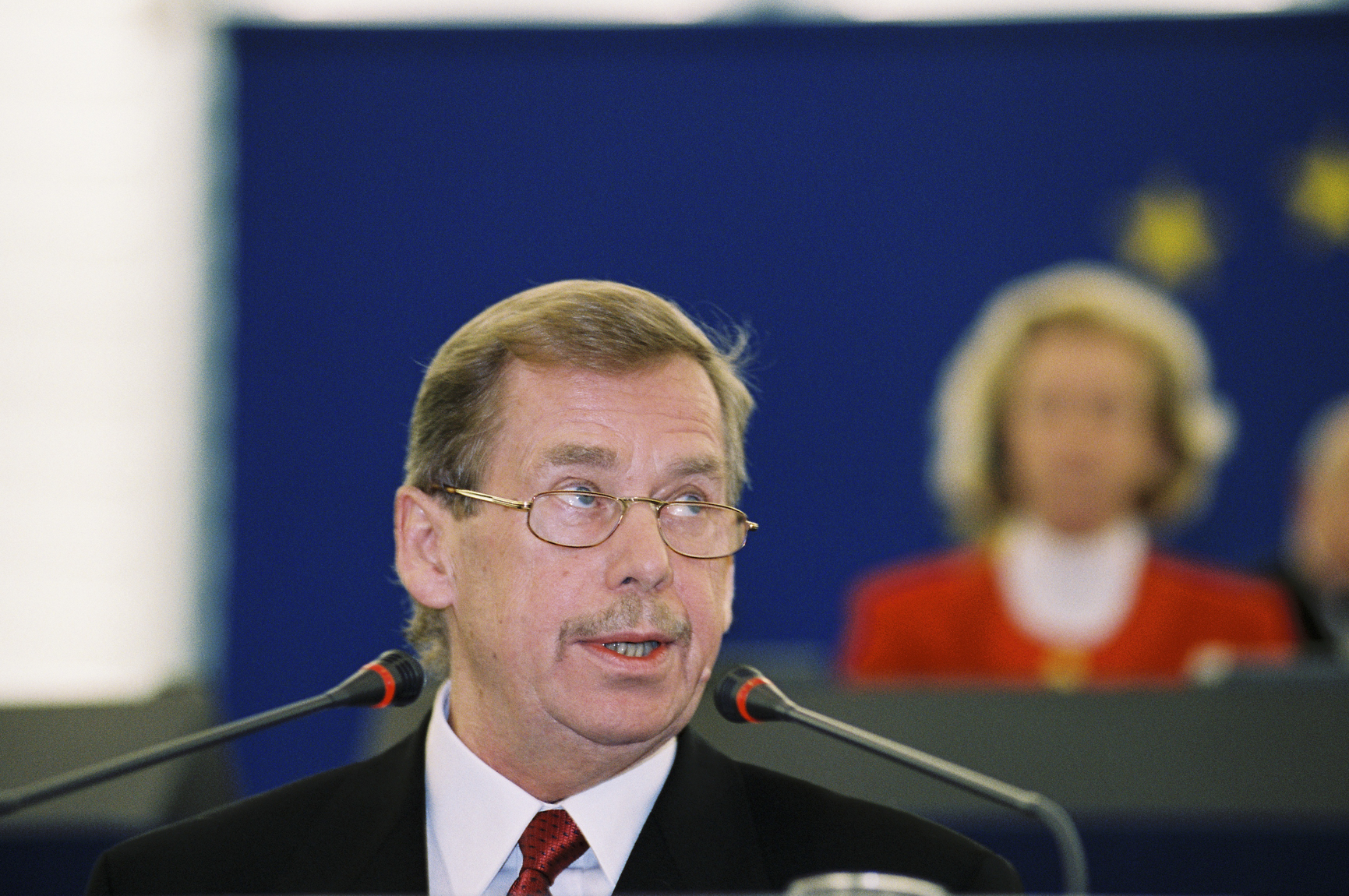A major player in the fall of communism in Europe
There were many sides to Václav Havel: playwright, writer, philosopher, dissident, politician and statesman. He was born on 5 October 1936 to an influential family of real estate entrepreneurs, which also owned a film studio. But everything changed in 1948. When the communists came to power, his parents were stripped of all their assets, accused of collaborating with the Nazis, and forced to work within the company which they themselves had founded. The regime branded Václav Havel a ‘class enemy’ and forbade him from studying literature and film studies as he had planned. After completing his secondary education, he attended evening classes at the Czech Technical University in Prague and managed to graduate in economics, despite spending his days working in a factory.
In the late 1950s, he embarked on a career in the theatre – a world that had fascinated him from a young age – as a stagehand and lighting technician. It was at this time that he met his future wife, actress Olga Havlová. Having already penned various theatrical news articles and reviews, he also began writing and directing his own plays, promoting the democratic ideal by subtly intertwining the absurd and Kafkaesque notions of human identity.
 Outside view of the Havel building in Strasbourg © European Union 2017 – European Parliament - CABINET ARCHITECTES IDOM
Outside view of the Havel building in Strasbourg © European Union 2017 – European Parliament - CABINET ARCHITECTES IDOM
The Prague Spring
Little by little, Václav Havel began to make a name for himself as a theatre producer. As his renown grew among the intelligentsia, his plays increasingly attracted the attention of regime censors and were officially banned in 1971. But it was with the crushing of the Prague Spring in 1968, following the Warsaw Pact Invasion of Czechoslovakia by Soviet troops, that his work took on a new political dimension.
Václav Havel stood by his convictions: rather than flee the country, he became a dissident. In an open letter to the President of the Czechoslovak Socialist Republic, he exposed the critical situation in society, pointing the finger at the political regime. He also became known, both at home and abroad, as a human rights activist and as a co-author of the 1977 ‘Charter 77’ manifesto, for which he became one of the main spokespersons. In this text, Havel reminded the country’s communist leaders of their human rights obligations – obligations they were violating in their suppression and ‘normalisation’ of Czechoslovak society.
Like many other political opponents, he was imprisoned. He spent a total of four years in prison, during which time he famously wrote ‘Letters to Olga’, his wife.
 Visit of Václav Havel, President of the Czech Republic © European Communities 2000
Visit of Václav Havel, President of the Czech Republic © European Communities 2000
The Velvet Revolution
As a lead political dissident, Václav Havel soon became a household name. In 1986, his popularity propelled him to the leadership of the Civic Forum, a movement unifying dissident forces and democratic thinkers. Havel’s presence and speeches at rallies drew ever-bigger crowds. He thus became a key figure in the Velvet Revolution, which resulted in the peaceful dissolution of the communist regime in December 1989. Forty-one years after the coup d’état that brought the communist party to power, the Czechoslovaks finally regained their freedom and democracy.
By a unanimous vote, Václav Havel was then made President of the Czechoslovak Republic. He overhauled the entire administration to facilitate the country’s transition towards a market economy. However, in July 1992, Havel decided to relinquish office because of his opposition to the separation of the Czechs and the Slovaks. In January 1993, he was re-elected President of an independent Czech Republic.
He oversaw the Czech Republic’s democratic transition, its shift to a market economy and its accession to NATO in 1999. Owing to ill health, he left office in 2003, but not without actively preparing the country for its EU membership the following year.
Late career
While Václav Havel was hugely popular abroad, his support back home gradually began to slip. His repeated interventions in government affairs attracted strong rebuke from some members of the political class. He was also criticised for recovering many of the real estate assets that the communists had confiscated from his family. Finally, he raised eyebrows over his second marriage – which followed so soon after his first – to famous actress Dagmar Veškrnová.
But this in no way diminishes his reputation or historical legacy. Despite being in poor health, Václav Havel continued to champion human rights across the globe until his death in 2011. He received many literary and artistic accolades as well as honours for his political action at home. His awards include: the Grand Cross of the Legion of Honour, which was awarded to him in France the day after communism’s collapse, the UNESCO prize for human rights in 1990, the International Charlemagne Prize of Aachen for work in the service of European unification, the Budapest Club’s Planetary Consciousness Award, the International Campaign for Tibet’s Light of Truth Award, and the Franz Kafka Prize, a literary award. Václav Havel also had around 40 honorary doctorates to his name, bestowed by institutions throughout the world.
In July 2017, the European Parliament named one of its buildings in Strasbourg ‘Havel’ in honour of his fight for human rights and democracy.
 Outside view of the Havel building in Strasbourg © European Union 2017 – European Parliament - CABINET ARCHITECTES IDOM
Outside view of the Havel building in Strasbourg © European Union 2017 – European Parliament - CABINET ARCHITECTES IDOM